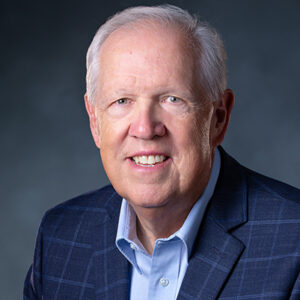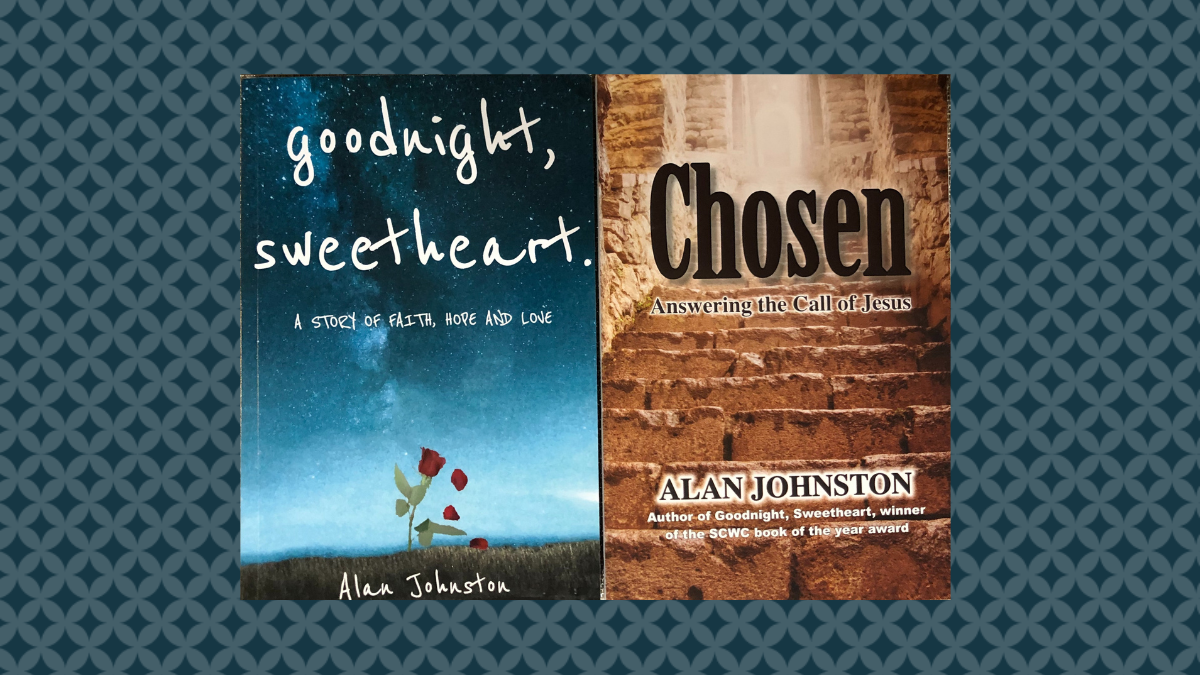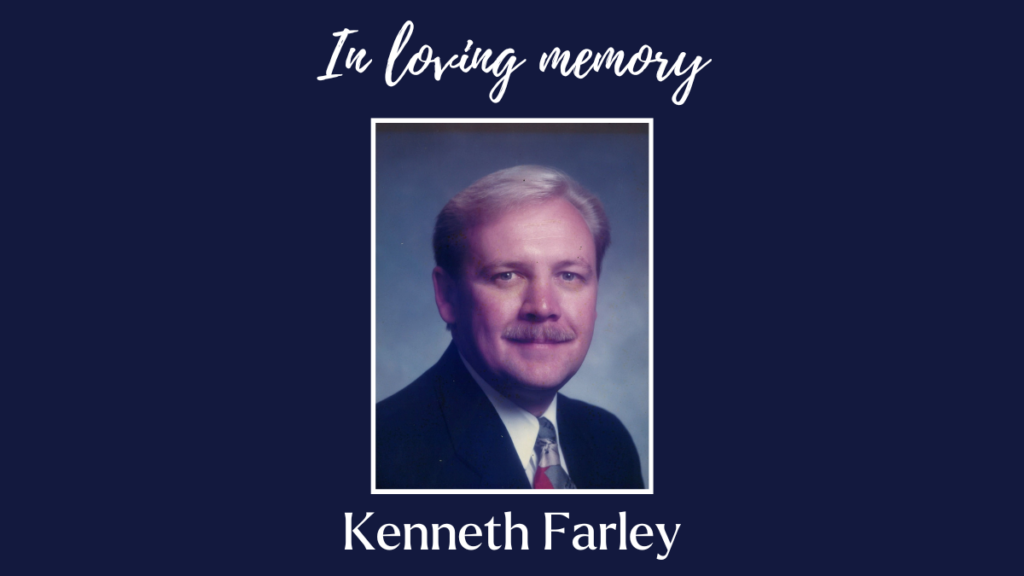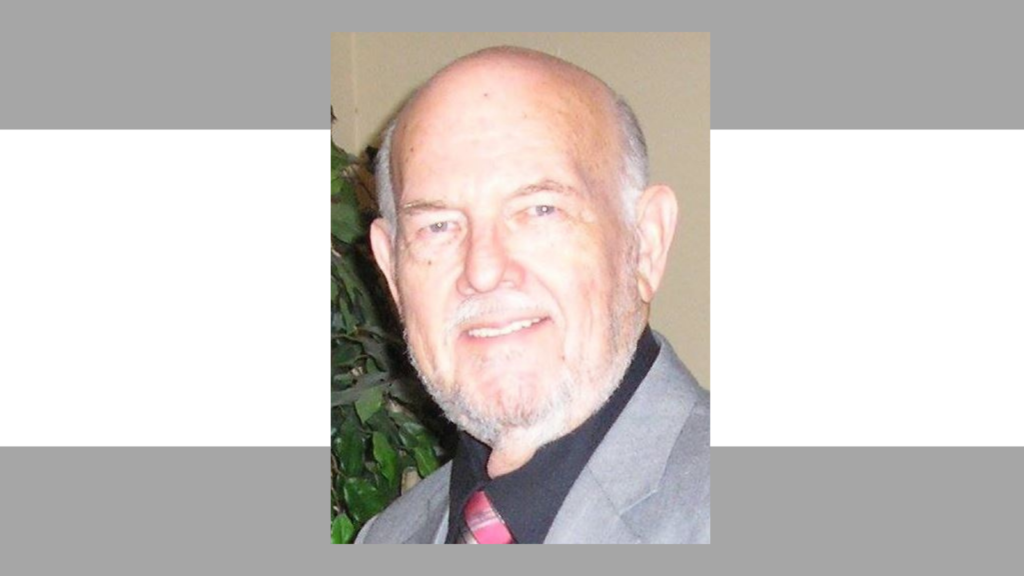One way of coping with the grief of a very difficult situation is to communicate feelings, thoughts, hopes and disappointments through talking to a friend or counselor, praying and writing them down.
Alan Johnston, who is a retired pastor, certified financial planner and licensed professional counselor, did all three after finding out his wife, Judy, had Alzheimer’s, eventually writing the book, “Goodnight, Sweetheart: A Story of Faith, Hope and Love,” about this time in their lives.
He began keeping a diary soon after the diagnosis.

“After she became worse — as the weeks became months and the months became years — I was unable to have a serious conversation about what was happening to her. But I continued to keep my little diary. I know that God led me to do it through my conservations with Him. I knew I had to do it because He told me to do it,” he said.
He’ll never forget the night his fears were confirmed.
His wife’s personal physician attributed her symptoms to stress, accounting for her age of only 54 years old and the fact that she was caring for her aging mother. Feeling unsure about the doctor’s conclusion, they decided to consult a neurologist.
“[The neurologist] called me on a Wednesday night,” Johnston said. “I could tell he was at home because I could hear his little girl playing in the background. I came in from prayer meeting and [Judy] had stayed for choir rehearsal.”
Knowing a call late on a Wednesday night wouldn’t be good news, he braced himself, only to hear that the brain scan showed atrophy. The doctor feared it was frontal lobe dementia.
“I mean, Alzheimer’s is wretched in any form, but frontal lobe dementia is horrid. I was heartbroken,” Johnston said.
New normal
Grieving hit hard after that initial diagnosis.
“I remember going back to my office. I got Judy back home and spent some time with her and went back to check on things at the office. I went in, turned around to my computer and pulled up the computer screen. I don’t remember; it doesn’t matter what was on it,” he said.
“I just sat there and cried and cried and cried.”
That initial breaking down period led to gut-wrenching grief off and on through the years.
As a licensed professional counselor, intellectually he knew the Kubler-Ross stages of grief — denial, anger, bargaining, depression and acceptance. Having lost his parents, grandparents, cousins and hundreds of church friends, he had experienced those stages himself more than once.
What he didn’t know was how a disease like this would affect those stages.
‘Crashing wave’
“You get moments of reprieve, only to be swept under again by the next crashing wave of grief. My experience with Judy is that some of the plateaus before the next cognitive decline were extended periods of time, yet I always knew the next wave was never far away,” he said.
At each plateau, they got used to a new normal — until his wife worsened. At each change, “the grief would get more intense and less intermittent.”
The main reason Johnston wanted to publish a book based off his diary was to help caregivers of loved ones with degenerative diseases. He hoped to could get it published in his wife’s lifetime.
However, during the last years of the progression of the disease, Johnston had a heart attack and quadruple bypass surgery. He didn’t have the time or energy to add more than a few words occasionally in his journal.
Even though Johnston wasn’t able to get it finished when he wanted, he’s glad he pushed through to finish it, with many readers telling him that this book has changed their lives.
“That was my prayer,” he said. “It was my hope that people would find hope. I mean, the subtitle is ‘A Story of Faith, Hope and Love.’ Somehow our faith, our Christian beliefs, the Bible — as our anchor — brings hope even when we can’t imagine we’ll see the light of another day.”
Continued calling
“Goodnight, Sweetheart” also won a Southern Christian Writers Conference Notable Book Award, validating the value of the book and its message.
Although it’s been difficult to keep going after his wife died, Johnston still has a calling and work to do. He followed “Goodnight, Sweetheart” with another, very different book.
“Chosen: Answering the Call of Jesus” is the result of a project done by Johnston while getting a doctor of ministry. It is based on the realization that typical congregations are made up of four basic personality types, with subsets of each type.
“Most pastors, by hard knocks, figure that out, usually later rather than sooner,” Johnston said.
With this idea in mind, he decided to do a psychological analysis of each apostle and generalized this information to members and leaders of church congregations. The goal was to learn how to motivate and challenge them to “come to the full realization of who they are in Christ and what God has for them personally to do.
“It’s about us. We are His current chosen. It’s about [the apostles], but it’s really about us.”
Both “Goodnight, Sweetheart” and “Chosen” can be purchased on Amazon or by contacting Johnston at alan@path2truth.com.






Share with others: